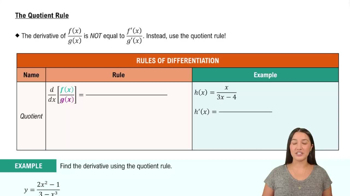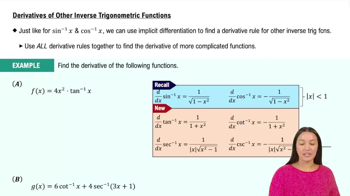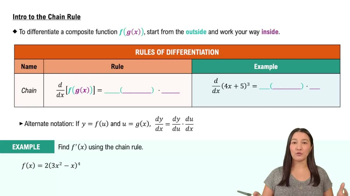Find the derivative of the following functions.
y = cot x / (1 + csc x)
 Verified step by step guidance
Verified step by step guidance Verified video answer for a similar problem:
Verified video answer for a similar problem:



 3:53m
3:53mMaster Derivatives of Sine & Cosine with a bite sized video explanation from Patrick
Start learning